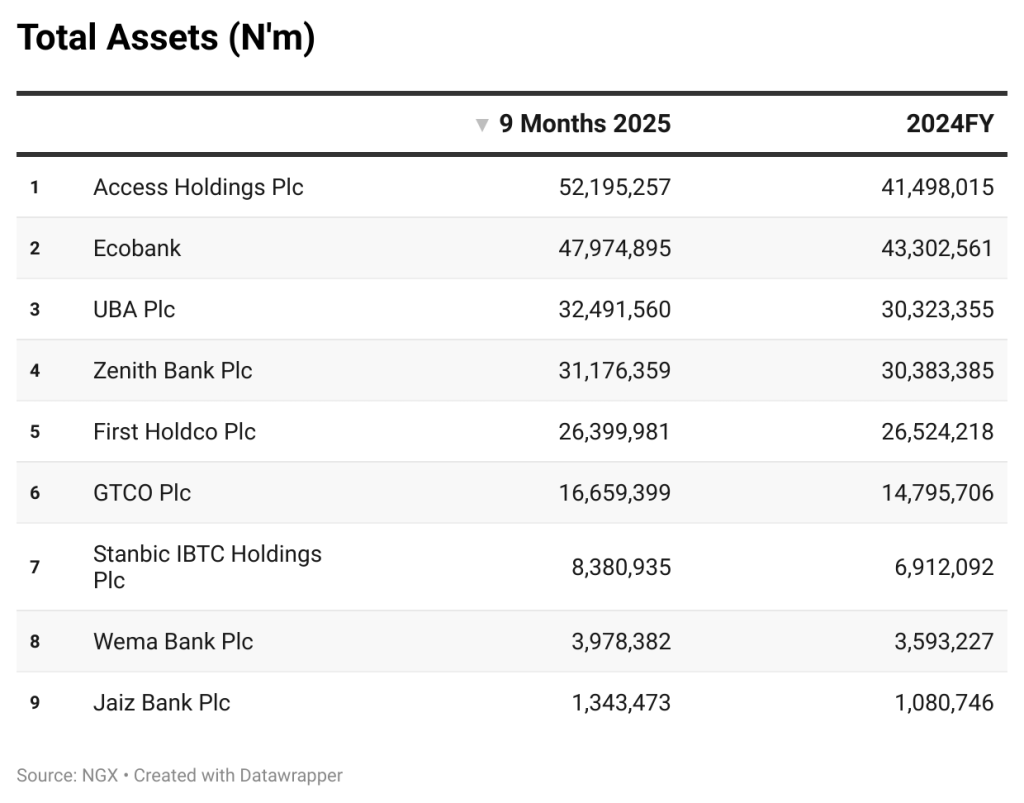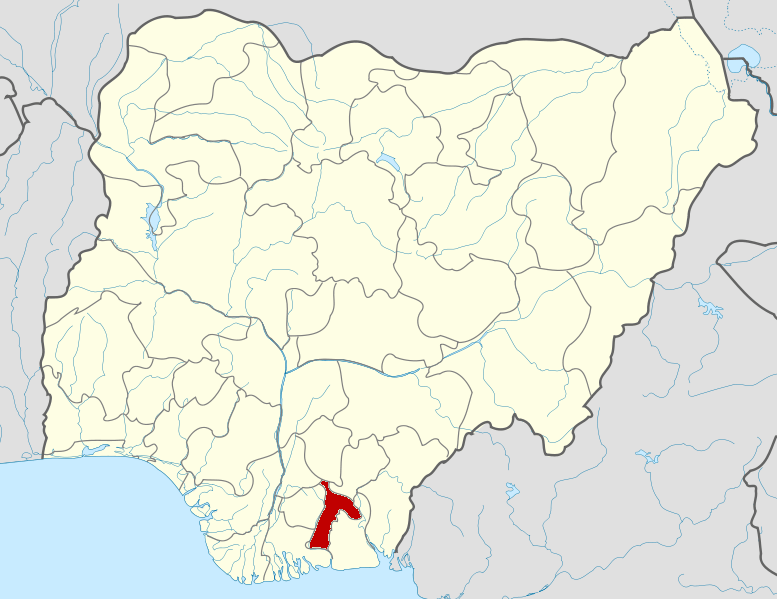White Tigers Retain Spires 5-Aside Football Tourney Title
White Tigers Retain Spires 5-Aside Football Tourney Title
Read moreFernandes Hat trick Helps Portugal Qualify for World Cup
Fernandes Hat trick Helps Portugal Qualify for World Cup
Read moreSundry Markets Wins “Most Sustainable Retail Organisation” Award
Sundry Markets Limited, owners of the Marketsquare supermarket chain, Nigeria’s largest indigenous grocery retail chain, has been honored as the “Most Sustainable Retail Organisation at the prestigious Africa Retail Awards 2025. The award underscores the company’s unwavering commitment to sustainability, ethical practices, and positive community impact. Organised by the Africa Retail Academy in partnership with Lagos Business School, Nairametrics, and KPMG, the Africa Retail Awards celebrate excellence and innovation in the continent’s retail sector. Sundry Markets…
Read moreOkeke: Second Citizenship Guarantees Wealth Retention, Global Access
At a recent interactive session with select business editors, Executive Director, Business Development at Optiva Capital Partners, Africa’s leading investment immigration firm, Ambassador Amaka Okeke, spoke extensively about the transformative power of second citizenship, real-life client success stories, and Optiva’s holistic approach to wealth retention and global access solutions. Also, she offered not just facts and figures, but heartfelt stories of transformation – from clients who found freedom and safety through second citizenship to entrepreneurs who…
Read moreFG Seeks Communication Renaissance as ARCON Declares Industry “Critical Tool for Economic Growth”
Raheem Akingbolu The federal government has urged marketing communications professionals to lead and galvanise the populace to take charge of Nigeria’s story as Nigeria prepares to reclaim its place on the global stage. According to the government, during challenging times, great communication remains one of the most powerful tools for growth, hence the need for agencies and business owners to explore advertising as a major tool for economic growth. Minister of Information and National Orientation, Mohammed Idris, who made the call while addressing…
Read moreChampion Breweries Conducts Signing Ceremony for Proposed N15.9bn Rights Issue
Champion Breweries Conducts Signing Ceremony for Proposed N15.9bn Rights Issue
As part of the arrangements to raise N15.9 billion through a rights Issue to existing shareholders, Champion Breweries Plc held a formal signing ceremony over the weekend.
The rights issue follows the shareholder approval received at Champion Breweries extra-ordinary general meeting (EGM) held in July 2025. The rights issue represents the first phase of a two-step capital raise, with a public offer to follow shortly.
The company said the proceeds will be utilised to fund the strategic acquisition of the Bullet brand, an important step in its domestic and international growth agenda. Under the offer terms, 994,221,766 ordinary shares of 50 Kobo each will be issued at N16 per share, on the basis of one new share for every nine existing shares held. The qualification date for determining eligible shareholders is September 4th, 2025.
At the signing ceremony, MD/CEO of Champion Breweries Plc, Dr. Adoga Inalegwu stated: “This Rights Issue marks a turning point for Champion Breweries. Completing the Rights Issue for the Bullet acquisition, gives us the scale and strength to compete beyond Nigeria, unlock high-margin growth, and build a platform that resonates internationally. To ensure the completion of the Bullet acquisition before year-end, the offer period will be time-sensitive. Shareholders are strongly encouraged to participate early to maximize the success of this strategic transaction.”
As part of the arrangements to raise N15.9 billion through a rights Issue to existing shareholders, Champion Breweries Plc held a formal signing ceremony over the weekend. The rights issue
Read moreNSDC, Lee Group to Establish Multi-million-Dollar Sugar Project
NSDC, Lee Group to Establish Multi-million-Dollar Sugar Project
Sunday Ehigiator
The National Sugar Development Council (NSDC) and the Lee Group have initiated plans to establish a multi-million-dollar sugar production project in Taraba State, as part of efforts to enhance Nigeria’s sugar self-sufficiency drive.
Leading a high-powered delegation comprising officials of the council and management of the Lee Group to Jalingo, the state capital, the Executive Secretary and Chief Executive Officer of NSDC, Mr Kamar Bakrin, met with Governor Agbu Kefas to seek the state government’s support and collaboration for the ambitious project.
Bakrin described the initiative as a major investment that could accelerate Nigeria’s quest for local sugar production, job creation, and rural development. He explained that the Council’s mandate goes beyond policy development to include capacity building, training, sugarcane research, and technical support for investors in financing and land acquisition.
Speaking on behalf of the investors, the Project Director of Lee Group, Mr Lam Wing Ki Wilkins, expressed the company’s readiness to partner with the Taraba State Government to establish a large-scale sugar processing plant through its subsidiary, GNAAL Sugar.
He described Taraba as a state with “immense potential for agriculture and industrial growth,” noting that the project would not only drive the state’s economic transformation but also align with national development objectives.
“We are not here merely to present an idea; we are here to build a lasting partnership. Our investment will enhance the state’s revenue base, create jobs, stimulate local enterprises, and empower farming communities through an inclusive out-grower scheme,” Wilkins said.
In his response, Taraba State Governor, Agbu Kefas, welcomed the delegation and assured them of his administration’s readiness to provide a conducive environment for the project. He emphasised that Taraba, endowed with rich arable land and abundant natural resources, remains an ideal location for large-scale agricultural investment.
Sunday Ehigiator The National Sugar Development Council (NSDC) and the Lee Group have initiated plans to establish a multi-million-dollar sugar production project in Taraba State, as part of efforts to
Read moreREA, Others to Provide Plateau Community with Solar Mini-grid
REA, Others to Provide Plateau Community with Solar Mini-grid
Seriki Adinoyi in Jos
Residents of the Namu community in the Qua’an Pan Local Government Area of Plateau State have expressed excitement as the Rural Electrification Agency (REA) led state and non-state actors to commission a 50-kilowatt solar mini-grid in line with Nigeria’s expanding clean-energy programme.
The project, implemented via partnership with the Global Environment Facility (GEF), Cloud Energy, Plateau State Energy Corporation, and supported by the United Nations Development Programme (UNDP) forms part of an initiative aimed at transforming under-served communities through sustainable power solutions.
In his remarks, Managing Director/Chief Executive Officer of REA, Abba Aliyu explained that Africa Mini-grid Programme (AMP) of REA is a flagship initiative to support access to clean energy and enhance financial viability, promoting large-scale commercial investment in renewable energy in Africa.
He said that the Namu project reflects President Bola Tinubu’s directive to accelerate rural electrification through renewable solutions, and announced that the Federal Government has approved a $750 million initiative under the World Bank supported distributed access to renewable energy scale-up project.
Performing the commissioning, Governor Caleb Mutfwang declared that the project symbolises “the beginning of a new journey toward transforming rural economies and empowering local communities.”
He noted that stable and clean electricity remains central to his administration’s strategy for improving agro-allied production, stimulating local enterprises, and expanding the rural economy.
UNDP Resident Representative, Elsie Attafuah, commended the robust collaboration which she said will empower the community, noting that sustainable energy remains a key driver of economic resilience, climate-action goals, and local peace-building.
Seriki Adinoyi in Jos Residents of the Namu community in the Qua’an Pan Local Government Area of Plateau State have expressed excitement as the Rural Electrification Agency (REA) led state
Read more2026 WCQ Playoffs: How Super Eagles Rated In Defeat To Congo
The Super Eagles of Nigeria lost 4-3 on penalities to the Leopards of Democratic Republic of Congo in the final of the 2026 FIFA World Cup playoffs in Rabat on Sunday night.Completesports.com’s ADEBOYE AMOSU appraises the performance of the players in the game. Stanley Nwabali 7/10 Produced a superb save to deny Chancel Mbemba late […] The post 2026 WCQ Playoffs: How Super Eagles Rated In Defeat To Congo appeared first on Complete Sports.
Read morePICTT Awards N200m Grants to 14 Women Engineers
Kayode Tokede The federal government has awarded N200 million in grants to 14 exceptional women engineers to scale up innovations addressing Nigeria’s key development challenges. The initiative, led by the Presidential Implementation Committee on Technology Transfer (PICTT) and the National Agency for Science and Engineering Infrastructure (NASENI), marks the second phase of the Developing Engineering Leadership and Technology–Her (DELT-Her) programme, designed to tackle gender disparity in Science, Technology, Engineering, and Mathematics (STEM). Speaking at the award…
Read more



